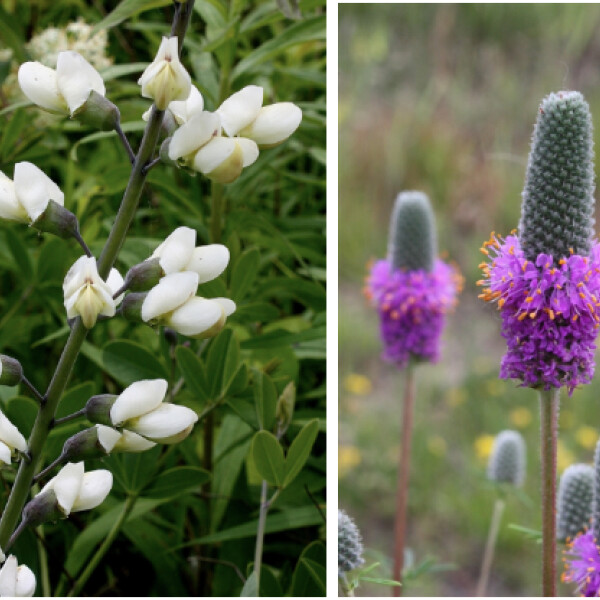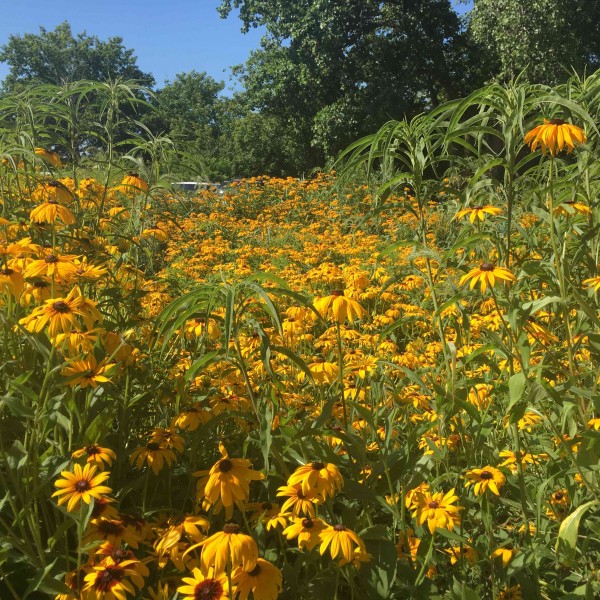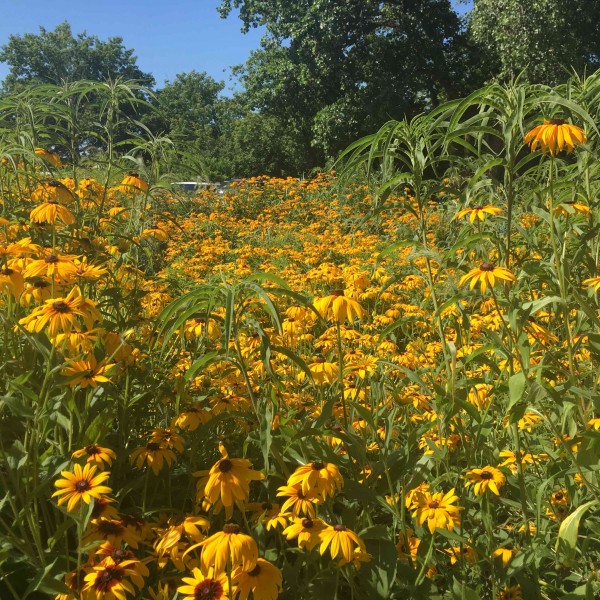
Using perennialization and polyculture as a “middle ground” for prairie restoration 2024
Greenhouse
Soil & Fungal Biology, Fieldwork, Labwork
Extensive research has demonstrated that intensive agriculture is a major contributor to large-scale degradation of soil health in many agroecosystems. These soils are no longer productive, and also challenging to restore to native ecosystems, like prairies. This leads us to ask: how can we modify agricultural practices to restore and maintain soil health?
Two strategies which have been shown to have beneficial effects on soil health are perennialization, i.e. planting perennial crops over annual ones, and polyculture, i.e. planting multiple crop species together. Kernza, a perennial wheat, is a crop which has shown particularly promising results for improving soil health in agricultural sites. However, we have limited data on how Kernza impacts the microbiome (the community of microbes living in the soil), particularly in the long term. There is also little research into the restoration potential of sites that have been planted with Kernza. Can these sites be converted to native prairies? If so, how long should Kernza be planted in order to maximize the possible benefits of planting on the microbiome? Do these effects on the microbiome subsequently improve the growth of native prairie plants?
This project will involve growing native prairie plants in a greenhouse using soil samples taken from Kernza monocultures and polycultures of varying ages. The goal is to investigate how the microbial communities may impact the success of native prairie plants. The REU student will gain experience working in the field, in the greenhouse, and in various soil analyses.




